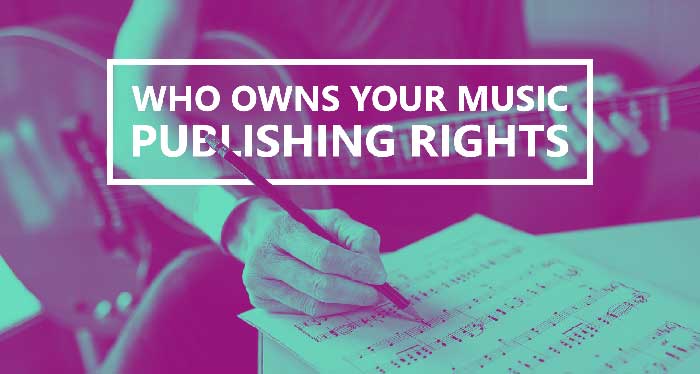Audio Realm Studios Who Owns Your Music Publishing Rights

Creating music is a wonderfully fulfilling passion that thousands of people pursue across a variety of genres, languages, and styles. Although it’s not a very romantic thought, music might be an art but it is also a business. Like any business, when there is money to gain there are rules and laws to learn. One of the most misunderstood legal concepts to understand in the music world is who has rights and ownership of the music you create. Copyright law views a “song” as the lyrics and the melody. While many people may be involved in the composition of a song, only a few people are entitled to ownership. This article will shed light on publishing rights and how to understand who gets paid from your music.
Publishing Rights
If you’re a composer, songwriter, or anyone who creates original music and are not a signed to a music publishing company, then you own your music publishing rights. That’s right. Everything that you create is your own original work, and you own that work. You determine how and when the musical copyright to the song(s) you’ve written get used. So what does that mean when it comes to financing? That means that you should earn money from publishing your music anytime your song is presented in any of the methods seen below.
- Streamed Used in a Social Media Post Performed Live Downloaded On a CD On the Radio Synced to TV, Film, and Other Forms of Media
All publishing dollars from your song should come to you whether it’s your original work, or another artist covering your song.
Publishing Royalties
Publishing royalties are when a composer or songwriter assigns the copyright of their composition to a publishing company. That publishing company in return licenses the composition and helps monitor where that composition is used so that royalties can be collected, and funds distributed to the composer. Typically the split of funds generated from the composition is split 50/50 between the songwriter(s) and the publisher. If you are not using a publishing company than you would be considered both the songwriter and the publisher, and this would be entitled to 100% of the earnings for your composition. Should you be one of a number of co-writers for a song then the distribution of royalties will ultimately come down to how all writers involved choose to distribute the funds. All parties might want to split everything down the middle for erasability while others may agree upon a percentage of contribution, and elect to have royalties divided based on that percentage. To avoid confusion it should be decided immediately upon completion of the composition who is entitled to what percentage of the royalties. Once an agreement is reached don’t forget to get it in writing.
Is Having a Publisher Worth the Cost
Publishers play an important role in the distribution of your composition. They use their experience and expertise to generate more income for your song(s) and help to avoid exploitation of your copyright. Again as mentioned earlier publishers typically get 50% of your royalties, however, the pros of having a publisher far outway the cost when you consider how impossible it would be for an independent songwriter to collect royalties worldwide, all the time, and every time your composition is used. The music business is indeed a business. Like any other business, it costs to own that business, but of course, it also pays as well. As long as you have realistic expectations on how and when you’ll be compensated for your music, as well as other parties that are entitled to compensation, then you’ll be better able to spend more time doing what you love, and bringing your sound to life.
Find Out More
You may be wondering what exactly it will cost you to record your song or full-length album. The exact costs will depend on a variety of factors, including quality (demo or commercial release), how many instruments are involved, and whether you’re well-rehearsed. To find out more about our hourly rates and get an estimate for your project, feel free to contact our team! today.
